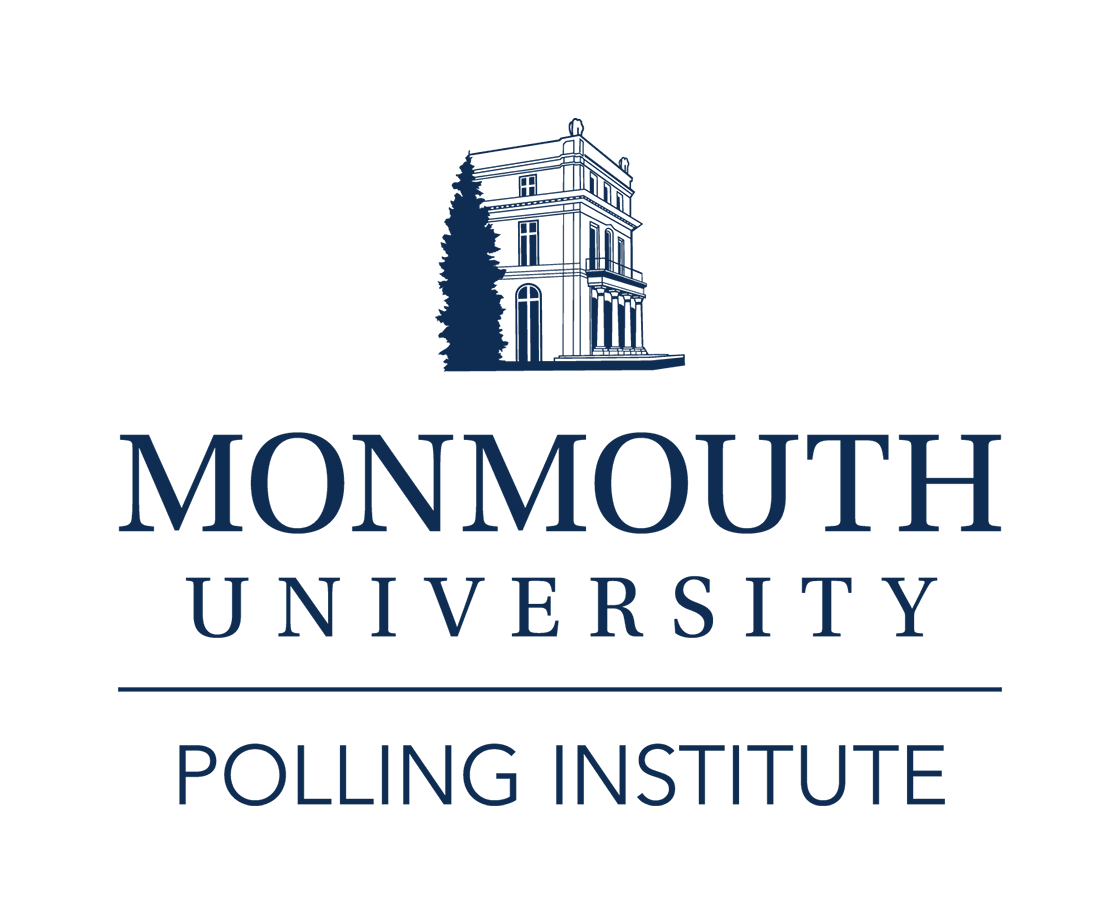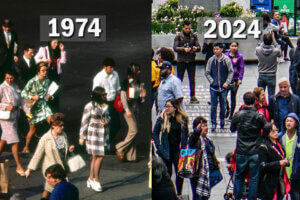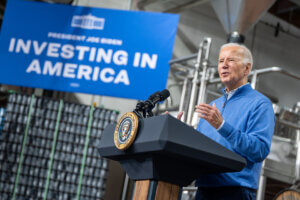West Long Branch, NJ – Nearly half of the public feels the post-Citizens United campaign funding environment has hurt presidential elections, while only 1-in-10 say it has improved the process. The Monmouth University Poll also found that 4-in-10 Americans feel that looser campaign finance rules make it more likely that an otherwise unqualified candidate can gain traction.
Nearly half (48%) of Americans feel that looser finance rules and an influx of campaign cash has made the presidential nominating process worse than in the past. Only 10% say the changes in campaign finance have made the process better and another 29% say this has had no impact. The sense that recent campaign finance rule changes have hurt the process prevails among independents (53%) and Democrats (50%), and, to a lesser extent, Republicans (43%).
The public is divided on whether these looser rules help or hurt good candidates trying to make a viable run at the White House. Just over 1-in-4 (28%) say that the current fundraising situation makes it more likely that a qualified but lesser known candidate will be able to gain voter attention and stay in the race longer, while a similar 27% say the new rules make it less likely. Another 34% say the new rules have no impact on whether a qualified candidate can make a serious run.
Americans are a little more certain on how the influx of campaign money is affecting less credible candidates. More than 4-in-10 (42%) say the looser finance rules increase the likelihood that an unqualified candidate can stay in the race longer and just 14% say it is less likely. Another 33% say the looser rules have no impact on an unqualified candidate’s viability and longevity in the race.
“The public is starting to worry that the Wild West nature of campaign finance is damaging the way we choose presidential candidates,” said Patrick Murray, director of the independent Monmouth University Polling Institute in West Long Branch, NJ.
Currently, 33% of Americans say that the best way to fund presidential campaigns is exclusively through private donations from individuals and groups with no public funding. That is down from 46% who said the same in a Gallup poll taken in 2007. Three years later, the Supreme Court’s decision in the Citizens United case opened the door to unlimited funding mechanisms for potential candidates. Those who now say that presidential campaigns should rely on private funding alone include 43% of Republicans, 33% of independents, and 23% of Democrats.
Just 17% of the American public feels that presidential campaigns should rely solely on public funding, compared to 22% who felt that way eight years ago. A plurality (44%) believe that presidential campaigns should be financed with a mix of public funding and private donations, which is up significantly from 28% in the 2007 Gallup poll.
The Monmouth University Poll also asked about the quality of the contenders seeking the two major parties’ nominations. The public is divided on the Republican field, with 20% saying this year’s group is better than in the past and 25% saying it is worse. Another 45% say the 2016 GOP field is about the same quality as in the past. Among Republican voters, 38% say this year’s field is better, 11% say it is worse, and 46% say it is about the same as in prior elections.
The public gives the Democratic field a slightly less positive rating compared to prior elections. Just 14% say this year’s group of candidates is better than in past contests and 24% say it is worse, although most (54%) say it is about the same. Among Democrats, 21% say their party’s 2016 presidential field is better than in past years, 13% say it is worse, and 60% say it is about the same quality overall.
The Monmouth University Poll was conducted by telephone from July 9 to 12, 2015 with 1,001 adults in the United States. This sample has a margin of error of ± 3.1 percent. The poll was conducted by the Monmouth University Polling Institute in West Long Branch, NJ.
DATA TABLES
The questions referred to in this release are as follows:
(* Some columns may not add to 100% due to rounding.)
Thinking again about the 2016 election…
[QUESTIONS 1 & 2 WERE ROTATED]
1. Do you think the current field of candidates seeking the Republican nomination for president is better or worse than in past years, or is it about the same?
| TOTAL |
REGISTERED |
PARTY ID | ||||
|
Yes | No | Rep | Ind |
Dem | ||
| Better | 20% | 22% | 14% | 38% | 20% | 7% |
| Worse | 25% | 26% | 25% | 11% | 25% | 40% |
| About the same | 45% | 46% | 41% | 46% | 46% | 42% |
| (VOL) Don’t know | 9% | 6% | 20% | 6% | 8% | 11% |
2. Do you think the current field of candidates seeking the Democratic nomination for president is better or worse than in past years, or is it about the same?
| TOTAL |
REGISTERED |
PARTY ID | ||||
|
Yes | No | Rep | Ind |
Dem | ||
| Better | 14% | 13% | 16% | 7% | 13% | 21% |
| Worse | 24% | 25% | 19% | 33% | 28% | 13% |
| About the same | 54% | 56% | 47% | 52% | 50% | 60% |
| (VOL) Don’t know | 8% | 6% | 17% | 8% | 10% | 6% |
3. Which of the following do you think would be the best way to finance presidential election campaigns – a system of public financing funded by the federal government; a system of private financing funded by donations from individuals and political groups as well as the candidate’s own money; or a combination of the two?
| TOTAL |
REGISTERED |
PARTY ID | ||||
|
Yes | No | Rep | Ind |
Dem | ||
| Public funding | 17% | 18% | 17% | 13% | 19% | 23% |
| Private funding | 33% | 35% | 26% | 43% | 33% | 23% |
| Combination of the two | 44% | 43% | 51% | 39% | 43% | 51% |
| (VOL) Don’t know | 5% | 5% | 6% | 5% | 5% | 4% |
4. Recent changes in campaign finance rules have allowed potential presidential candidates to raise more money today than they have in the past. How has this affected the process by which the parties nominate presidential candidates – has it made the process better, made it worse, or has it had no real impact?
| TOTAL |
REGISTERED |
PARTY ID | ||||
|
Yes | No | Rep | Ind |
Dem | ||
| Made better | 10% | 9% | 13% | 12% | 7% | 9% |
| Made worse | 48% | 50% | 39% | 43% | 53% | 50% |
| No impact | 29% | 29% | 27% | 33% | 27% | 25% |
| (VOL) Don’t know | 14% | 12% | 20% | 11% | 13% | 16% |
[QUESTIONS 5 & 6 WERE ROTATED]
5. Do you think these looser campaign finance rules make it more likely or less likely that qualified but lesser-known candidates will be able to gain voter attention and stay in the race longer, or do the finance rules make no difference?
| TOTAL |
REGISTERED |
PARTY ID | ||||
|
Yes | No | Rep | Ind |
Dem | ||
| More likely | 28% | 29% | 27% | 31% | 30% | 26% |
| Less likely | 27% | 29% | 22% | 23% | 29% | 30% |
| No difference | 34% | 32% | 40% | 35% | 30% | 36% |
| (VOL) Don’t know | 10% | 10% | 11% | 11% | 11% | 8% |
6. Do you think these looser campaign finance rules makes it more likely or less likely that unqualified candidates will be able to gain voter attention and stay in the race longer, or do the finance rules make no difference?
| TOTAL |
REGISTERED |
PARTY ID | ||||
|
Yes | No | Rep | Ind |
Dem | ||
| More likely | 42% | 42% | 43% | 45% | 41% | 44% |
| Less likely | 14% | 14% | 16% | 9% | 14% | 17% |
| No difference | 33% | 34% | 29% | 34% | 35% | 30% |
| (VOL) Don’t know | 10% | 10% | 12% | 12% | 9% | 9% |
The Monmouth University Poll was sponsored and conducted by the Monmouth University Polling Institute from July 9 to 12, 2015 with a national random sample of 1,001 adults age 18 and older. This includes 700 contacted by a live interviewer on a landline telephone and 301 contacted by a live interviewer on a cell phone, in English. Monmouth is responsible for all aspects of the survey design, data weighting and analysis. Final sample is weighted for region, age, education, gender and race based on US Census information. Data collection support provided by Braun Research (field) and SSI (RDD sample). For results based on this sample, one can say with 95% confidence that the error attributable to sampling has a maximum margin of plus or minus 3.1 percentage points (unadjusted for sample design). Sampling error can be larger for sub-groups (see table below). In addition to sampling error, one should bear in mind that question wording and practical difficulties in conducting surveys can introduce error or bias into the findings of opinion polls.
|
POLL DEMOGRAPHICS (weighted) | |||
| 26% Rep | 49% Male | 31% 18-34 |
66% White |
| 43% Ind | 51% Female | 37% 35-54 |
12% Black |
| 31% Dem | 32% 55+ |
15% Hispanic | |
| 7% Asian/Other | |||
Click on pdf file link below for full methodology and results by key demographic groups.




